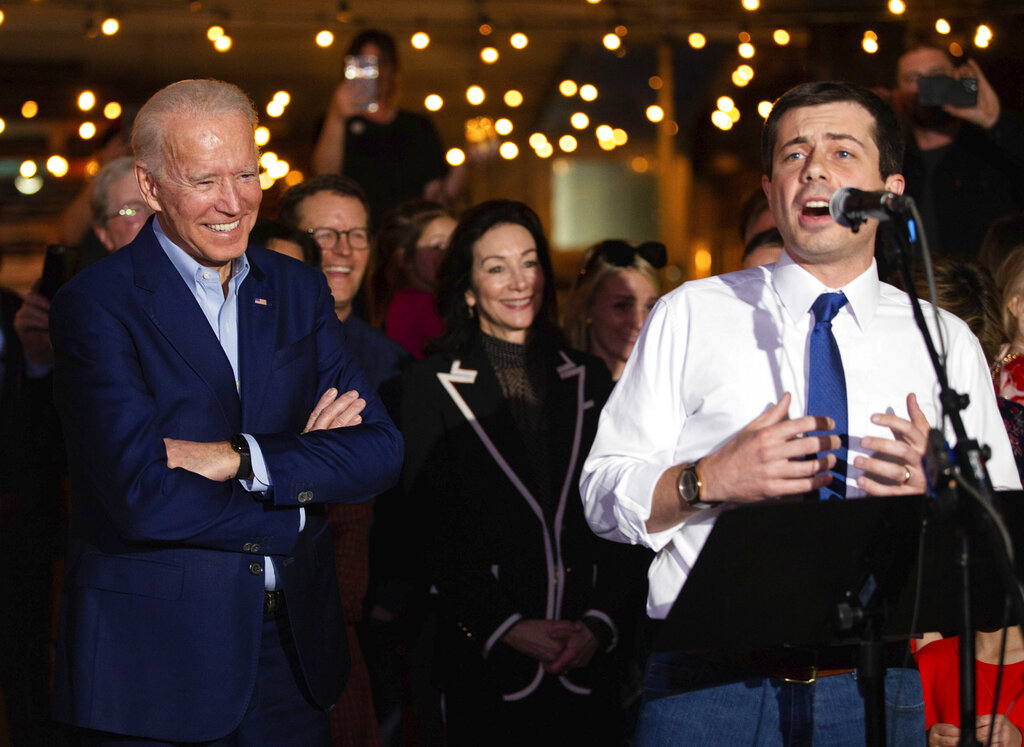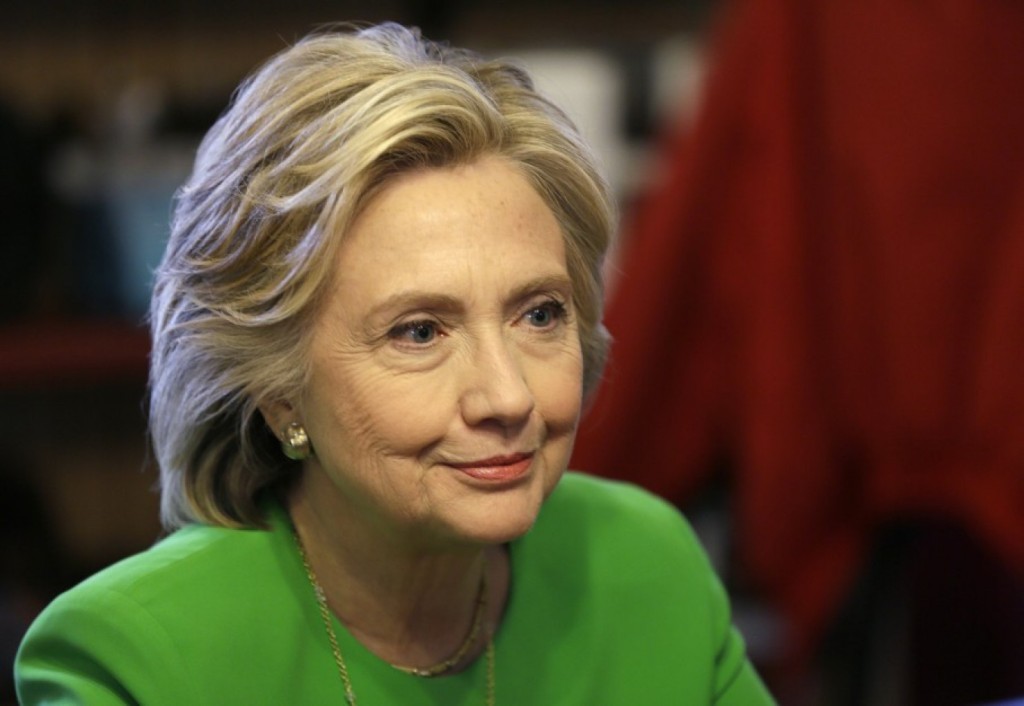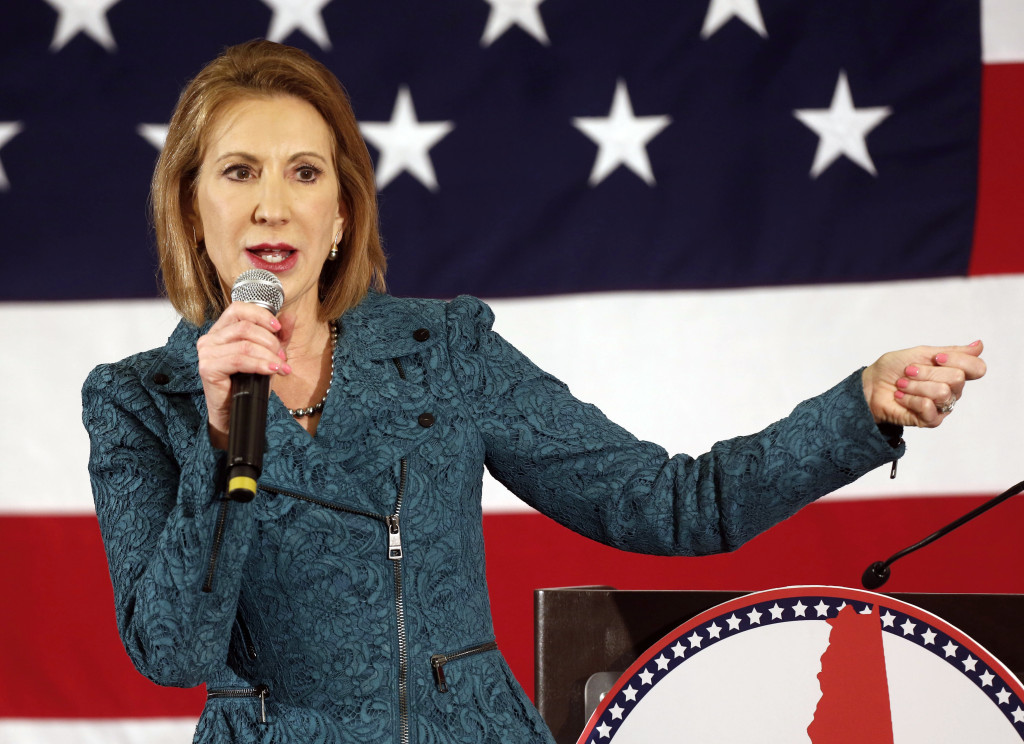Missouri senator Josh Hawley to contest Joe Biden’s Electoral College win

Sen. Josh Hawley, R-Mo., said Wednesday he will raise objections next week when Congress meets to affirm President-elect Joe Biden’s victory in the election, forcing House and Senate votes that are likely to delay — but in no way alter — the final certification of Biden’s win. President Donald Trump has, without evidence, claimed there was widespread fraud in the election. He has pushed Republican senators to pursue his unfounded charges even though the Electoral College this month cemented Biden’s 306-232 victory and multiple legal efforts to challenge the results have failed. A group of Republicans in the Democratic-majority House have already said they will object on Trump’s behalf during the Jan. 6 count of electoral votes, and they had needed just a single senator to go along with them to force votes in both chambers. Without giving specifics or evidence, Hawley said he would object because “some states, including notably Pennsylvania” did not follow their own election laws. Lawsuits challenging Biden’s victory in Pennsylvania have been unsuccessful. “At the very least, Congress should investigate allegations of voter fraud and adopt measures to secure the integrity of our elections,” Hawley said in a statement. He also criticized the way Facebook and Twitter handled content related to the election, characterizing it as an effort to help Biden. Biden transition spokeswoman Jen Psaki dismissed Hawley’s move as “antics” that will have no bearing on Biden being sworn in on Jan. 20. “The American people spoke resoundingly in this election and 81 million people have voted for Joe Biden and Kamala Harris,” Psaki said in a call with reporters. She added: “Congress will certify the results of the election as they do every four years.” White House Chief of Staff Mark Meadows praised Hawley on Twitter for “unapologetically standing up for election integrity.” When Congress convenes to certify the Electoral College results, any lawmaker can object to a state’s votes on any grounds. But the objection is not taken up unless it is in writing and signed by both a member of the House and a member of the Senate. When there is such a request, then the joint session suspends and the House and Senate go into separate sessions to consider it. For the objection to be sustained, both chambers must agree to it by a simple majority vote. If they disagree, the original electoral votes are counted. The last time such an objection was considered was 2005, when Rep. Stephanie Tubbs Jones of Ohio and Sen. Barbara Boxer of California, both Democrats, objected to Ohio’s electoral votes by claiming there were voting irregularities. Both chambers debated the objection and rejected it. It was only the second time such a vote had occurred. As president of the Senate, Vice President Mike Pence will preside over the Jan. 6 session and declare the winner. Asked about Hawley’s announcement, House Speaker Nancy Pelosi, D-Calif., said, “I have no doubt that on next Wednesday, a week from today, that Joe Biden will be confirmed by the acceptance of the vote of the electoral college as the 46th president of the United States.” Hawley is a first-term senator and potential contender in the 2024 presidential primary, and his decision to join the House objectors is a rebuff to Senate Majority Leader Mitch McConnell, who had asked his caucus not to participate in a futile quest to overturn the results. Aware that the Democratic-led House would not support such a challenge and that it would put most of his fellow GOP senators in a bind, McConnell told them on a private call Dec. 15 that it would be a “terrible vote” to have to take. That’s according to two people who were not authorized to publicly discuss the private call and spoke on condition of anonymity. While some Republicans have echoed Trump’s unsubstantiated claims, or at least refused to counter them, McConnell and an increasing number of GOP senators have acknowledged that Biden won and will be inaugurated Jan. 20. The Senate’s No. 2 Republican, South Dakota Sen. John Thune, said earlier this month that if the Senate were forced to vote on a challenge “it would go down like a shot dog.” Thune said it didn’t make sense to put senators through a vote when “you know what the ultimate outcome is gonna be.” A range of nonpartisan election officials and Republicans have confirmed there was no fraud in the November contest that would change the results of the election. That includes former Attorney General William Barr, who said he saw no reason to appoint a special counsel to look into the president’s claims about the 2020 election. He then resigned from his post last week. Trump and his allies have filed roughly 50 lawsuits challenging election results, and nearly all have been dismissed or dropped. He’s also lost twice at the Supreme Court. The group of House Republicans have said they plan to challenge the election results from Michigan, Wisconsin, Pennsylvania, Georgia, and Nevada. All are states that Biden carried. Alabama Rep. Mo Brooks, one of the Republicans who is leading the efforts, has raised questions about the way state elections were conducted. Some of the states made changes to ballots and procedures during the pandemic. While the new procedures may have led to confusion in some places, state and federal officials have said there was no credible evidence of widespread fraud. In addition to having to go on the record with a vote, Republicans are worried about negative effects on the two Senate runoff elections in Georgia on Tuesday. GOP Sens. David Perdue and Kelly Loeffler face Democratic challengers Jon Ossoff and Raphael Warnock in a state that flipped in November for Biden. Republished with the permission of the Associated Press.
On Super Tuesday eve, Joe Biden gets boost from former rivals

Biden received the support of former rivals, Pete Buttigieg and Amy Klobuchar.
Latest GOP campaigns for White House star Hillary Clinton

el starred in two presidential campaign launches this week. Neither was her own. The leading Democrat was featured prominently by two Republican contenders, former Arkansas Gov. Mike Huckabee and former technology executive Carly Fiorina, whose road to relevancy in 2016 may be inextricably tied to the former first lady. As other Republicans begin to jab each other, both Fiorina’s and Huckabee’s nascent campaigns are based on the notion that they are uniquely positioned to defeat Clinton. Both may be overstating their cases. Huckabee didn’t explicitly mention Clinton on Tuesday even as he began a second presidential bid in the hometown he shares with her husband, Bill Clinton, the 42nd president. Yet the strategy was clear, as Huckabee and his senior aides cast him as a conservative populist outsider and the only Republican to have successfully taken on the Clinton political machine. The opening frames of Huckabee’s campaign video featured a black-and-white photo of the Clintons. In his speech, Huckabee recalled “challenging the deeply entrenched political machine that ran this state.” Later, he took a swipe at Hillary Clinton, noting that he doesn’t “have a global foundation” to help start his campaign. It was much the same for Fiorina, the only high-profile woman seeking the Republican presidential nomination, as she stepped into the presidential race the day earlier. Before appearing in her own announcement video, Fiorina began with a few moments of Clinton declaring her candidacy. “I would be running for president regardless of who the nominee on the Democratic side was, but really the point in highlighting her is that she is the personification of the professional political class,” said Fiorina, a former Hewlett-Packard CEO who has never held elected office. “She and her husband have been in politics their entire lives.” Fiorina, who ran for a Senate seat in California and lost to incumbent Democratic Sen. Barbara Boxer, emerged as one of the GOP’s most aggressive Clinton critics in the weeks leading up to this week’s announcement. She remains relatively unknown among the broader electorate, yet her aides suggest Fiorina has the ability to talk about issues and go after Clinton in ways her male colleagues cannot. “It is clear that, in sharp contrast to Hillary, people see Carly as genuine, authentic and trustworthy,” Sarah Isgur Flores, Fiorina’s deputy campaign manager, said in a campaign memo. Huckabee’s Clinton focus is more personal. His introductory campaign video is titled “Nailed Shut,” a reference to an office door being sealed off to him the day before he was sworn in as lieutenant governor in 1993 — a story he tells to illustrate what he was up against with the Democratic power structure in Little Rock. Clinton was governor until the end of 1992, before moving to the White House. His Democratic successor was caught in an ethics scandal and Huckabee ascended to the governor’s office. “There was a Democrat machine and (Bill) Clinton was the head of that machine,” said Arkansas Republican Chairman Doyle Webb. The man Huckabee beat remembers it differently. Now a Little Rock attorney, Nate Coulter said the Clintons didn’t campaign for him. “They had things that were, frankly, more important to them and the republic,” he said. Campaign materials that Huckabee aides distributed to reporters Tuesday framed Coulter as a Clinton stand-in. He had worked as an assistant legal counsel in the governor’s office before Clinton was elected president. “It’s a useful national narrative” for Huckabee to run as a Clinton rival, said Janine Parry, a political science professor at the University of Arkansas. “But in the state it seems like a stretch.” Perhaps most accurately, Huckabee is simply one of several Republican governors in the South who still had to deal with Democratic legislative majorities as the region evolved from a Democratic stronghold to near complete Republican control now, eight years after Huckabee left office. Jonathan Barnett, a former Arkansas legislator who first met Huckabee in high school, noted that Huckabee’s rise is linked directly to Clinton. The 1993 special election for lieutenant governor came about because Jim Guy Tucker ascended to the chief executive’s job when Clinton left Little Rock for the Oval Office. “Bill Clinton becoming president opened up a lot of doors for Mike Huckabee,” said Barnett, a Republican. “How about that?” Still, Webb, the party chairman, says, “You can’t argue there wasn’t a Democrat machine in the state.” And, perhaps even more noteworthy, Huckabee and Bill Clinton certainly share a political style built on connecting with working-class voters and small-town conservatives, which both men credit to their formative years in small-town Arkansas. “I still believe in a place called Hope,” Clinton said in a biographical video played at the 1992 Democratic National Convention and still played at small museum in his hometown. On Tuesday, Huckabee dusted off his own homage to Hope, repeatedly promising to take Americans “from hope to higher ground.” Republished with permission of the Associated Press.
GOP field grows: Carly Fiorina, Ben Carson to launch presidential bids

Former technology executive Carly Fiorina and retired neurosurgeon Ben Carson are set to launch their runs for president on Monday, each with the potential to help the Republican Party win over a more diverse group of supporters in 2016. Fiorina is likely to be the only prominent woman to seek the GOP nomination, with Carson the only likely African-American. They are both also political outsiders in a field likely to be dominated by governors, former governors and senators. The two are not considered political allies and the timing of their announcements, planned weeks ago, is coincidental. Carson also got ahead of himself on Sunday, confirming his plans to run in an interview that aired on an Ohio television station. “I’m willing to be part of the equation and therefore, I’m announcing my candidacy for president of the United States of America,” he told WKRC-TV in Cincinnati. Carson, 63, is scheduled to make his formal announcement Monday in a speech from his native Detroit shortly after having breakfast at a local museum of African-American history. Fiorina, 60, will enter the race Monday morning in a video posted online. Both candidates begin the race as underdogs in a campaign expected to feature several seasoned politicians, among them former Florida Gov. Jeb Bush, Wisconsin Gov. Scott Walker, along with Florida Sen. Marco Rubio and Texas Sen. Ted Cruz. Yet while they have claimed much of the early attention and favor from donors, the GOP race is a wide-open contest that could ultimately feature as many as two dozen major candidates. The Republican field is already more diverse than it was four years ago. Fiorina and Carson will compete against Republican counterparts Rubio and Cruz, each vying to become the first Hispanic president. And most of the candidates are in their 40s and 50s. Still, the Republican National Committee has acknowledged a pressing need to broaden the party’s appeal beyond its traditional base of older, white men. President Barack Obama won re-election in 2012 with the strong support of women and ethnic minorities, who are becoming a larger portion of the American electorate. Raised in Detroit by a single mother, Carson practiced medicine and served as the head of pediatric neurosurgery for close to three decades at Baltimore’s Johns Hopkins Children’s Center. He gained national renown in conservative politics after condemning Obama’s health care law at the 2013 national prayer breakfast. He has established a strong base of vocal support among Tea Party-backers, some of whom launched an effort to push Carson into the race before he set up an exploratory committee earlier this year. Yet he has stumbled at times in the glare of national politics. He has suggested the Affordable Care Act is the worst thing since slavery, compared present-day America to Nazi Germany, and called problems at the nation’s Veterans Affairs hospitals “a gift from God” because they revealed holes in country’s effort to care for former members of the military. Fiorina, meanwhile, has a resume more likely to draw support among the Republican establishment. The former chief executive of Hewlett-Packard Co., she became a prominent figure in Republican politics in 2010, when she ran for Senate in California and lost to incumbent Sen. Barbara Boxer by 10 points. In the past several months, she has emerged as a fierce critic of Hillary Rodham Clinton, the front-runner for the Democratic nomination, whose potential to become the nation’s first female president is a centerpiece of her political brand. Both Carson and Fiorina immediately launch national tours in early voting states. Carson is scheduled to spend the first three days of his presidential campaign in Iowa, before heading to South Carolina at the end of the week and New Hampshire and Nevada the next. Fiorina’s first post-announcement public event is scheduled for Tuesday in New York City, although she will campaign in Iowa, New Hampshire and South Carolina by week’s end. Republished with permission of The Associated Press. Photo Credit: Jim Cole, AP


